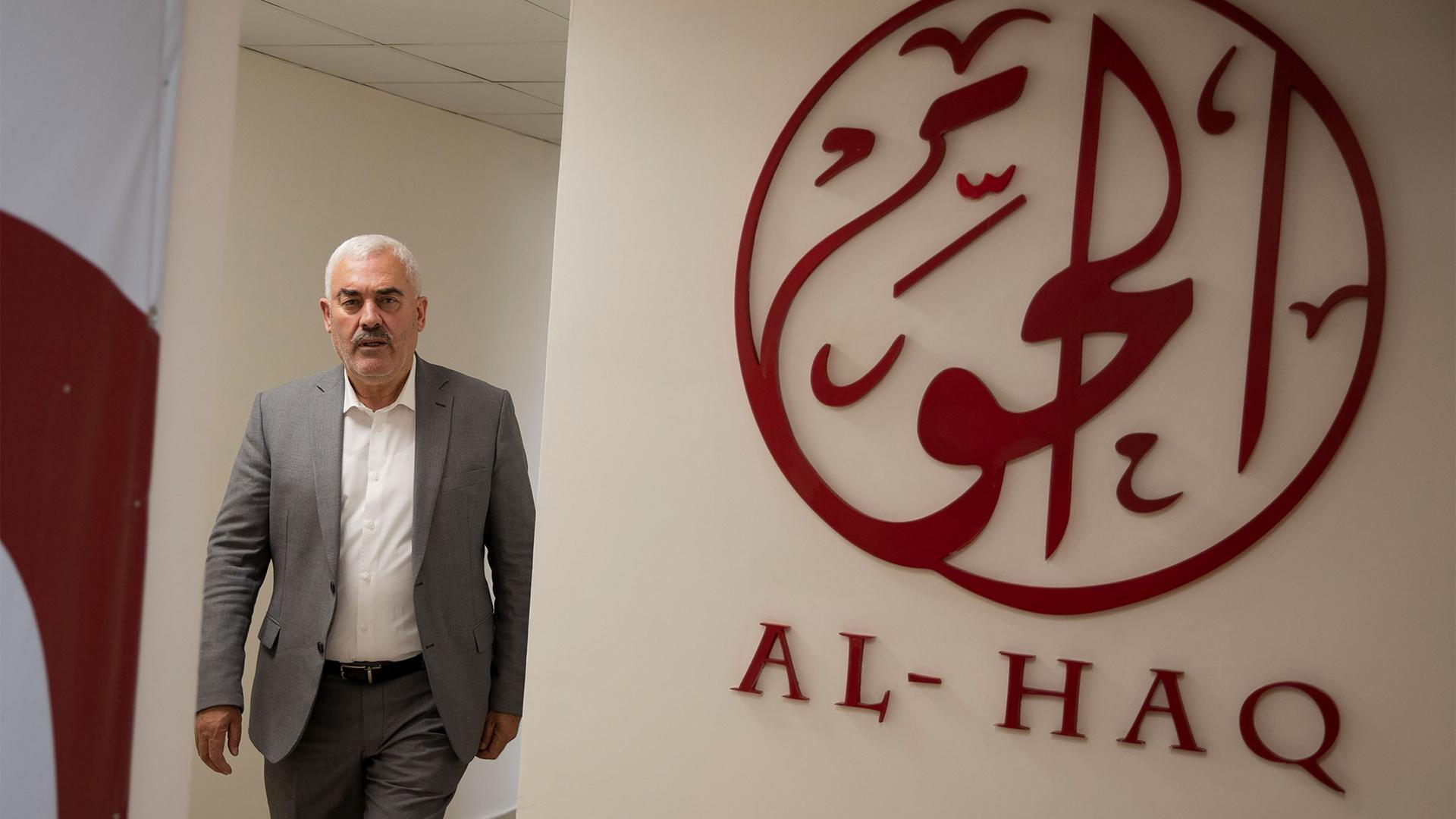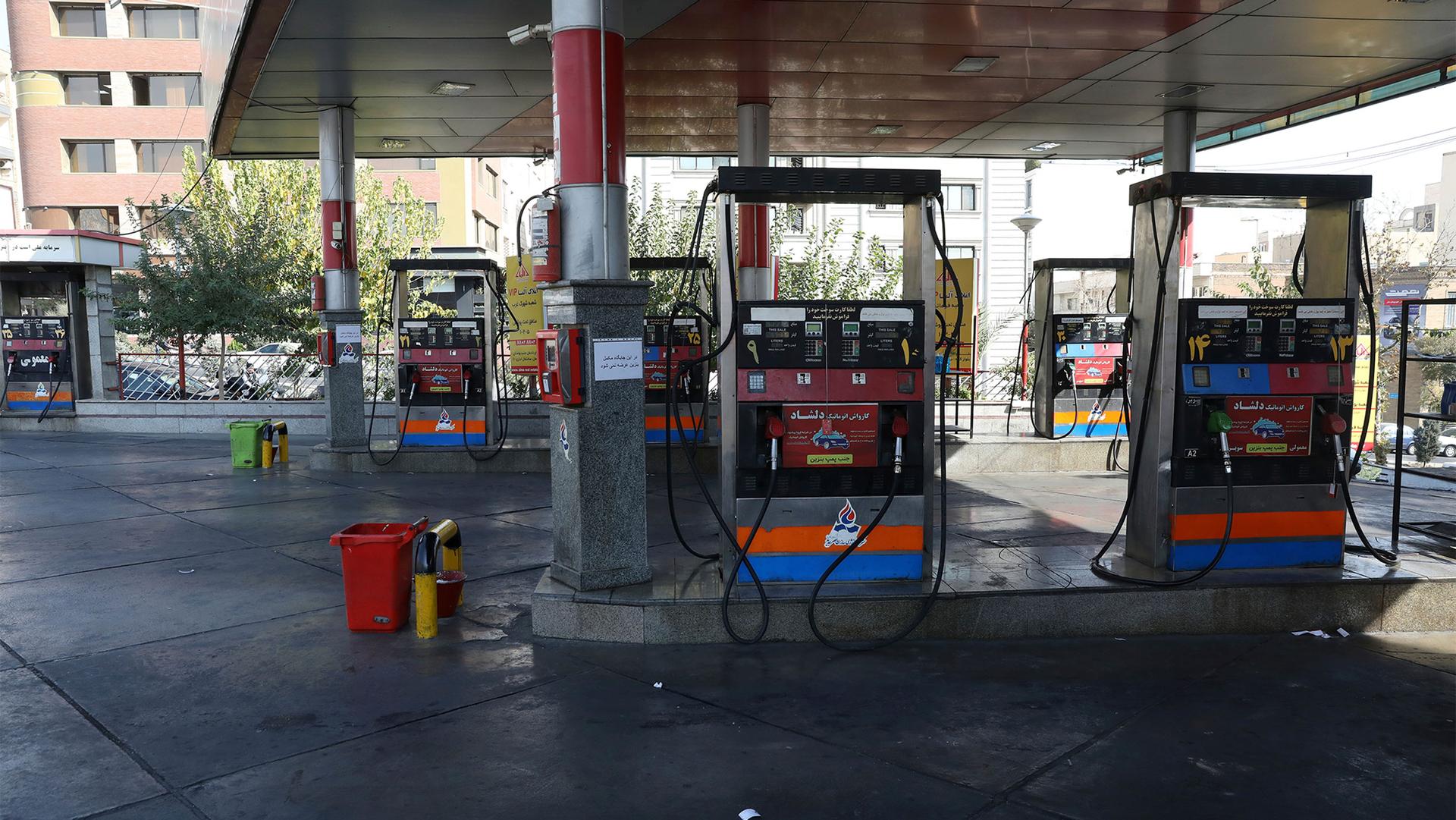Iran faces widespread gas station outage, believed to be a cyberattack.
A gas station is empty because the gas pumps are out of service in Tehran, Iran, after a widespread outage of a system that allows consumers to buy fuel with a government-issued card, Oct. 26, 2021.
Top of The World — our morning news roundup written by editors at The World. Subscribe here.
Iran
A widespread network outage, believed to be caused by a cyberattack, has affected gas stations across Iran, shutting down a government system that manages fuel subsidies, and leaving angry motorists stranded in long lines at shuttered stations. No group has claimed responsibility for the outage. The semiofficial ISNA news agency reported that those trying to buy fuel with a government-issued card through machines received a message reading “cyberattack 64411.” Most Iranians rely on the subsidies to fuel their vehicles, particularly amid the country’s economic problems, and an economy that’s been buckling under US sanctions. The use of the number “64411” mirrors an cyberattack in July targeting Iran’s railroad system that also saw the number displayed. Israeli cybersecurity firm Check Point later attributed the train attack to a group of hackers that called themselves Indra, after the Hindu god of war.
Sudan
A day after a military coup in Sudan, protesters burned tires and blocked roads with makeshift barricades in the capital Khartoum. The takeover came after weeks of mounting tensions between military and civilian leaders over the course and pace of Sudan’s transition to a democratic system, which has made slow progress since the ousting of former President Omar al-Bashir in 2019. Sudan’s top general Abdel Fattah al-Burhan maintains that the military ousted the government to avoid civil war. The US had removed Khartoum from a list of state sponsors of terrorism last year, and recently voiced support for civilian rule sending in the top regional envoy, Jeffrey Feltman, to dissuade the military leadership from seizing power, but the generals made their move three hours after Feltman’s departure.
Egypt
Egypt has ended its state of emergency for the first time since 2017, saying that it’s no longer needed. Since the assassination of President Anwar Sadat in 1981, Egypt has been under a continuous state of emergency with the exception of a few years following the 2011 revolution that ousted Hosni Mubarak. It was reinstated after the bombings of two Coptic churches by an ISIS affiliate that killed more than 40 people and wounded dozens more in April 2017. The state of emergency had granted the government sweeping authority to quash protests, detain dissidents and control everyday life in the most populous Arab country. Prominent Egyptian activist Hossam Bahgat said the decision would stop the use of emergency state security courts, though it would not apply to some high-profile cases already referred to such courts.
From The World
Israeli designation of 6 NGOs as terrorist organizations ‘criminalizes’ civil society work, media consultant says

Israel’s defense minister has designated six Palestinian rights groups — al-Haq, Addameer, the Bisan Center for Research and Development, the Union of Palestinian Women’s Committees, Defense for Children International-Palestine and the Union of Agricultural Work Committees — as terrorist organizations. Israel says the groups are connected to the Popular Front for the Liberation of Palestine (PFLP), which has been behind attacks in the past.
The announcement brought swift condemnation. The US State Department said it was never notified of the decision, and human rights campaigners say the terror designations are baseless. Activists called on the international community on Saturday to help reverse Israel’s unprecedented decision.
Nour Odeh, a media consultant based in Ramallah, who is a former spokesperson for the Palestinian Prime Minister’s Office, discussed the move with The World’s Carol Hills.
In China, jump roping is a popular competitive sport. Skill level also affects kids’ grades.

In China, where classrooms can have upwards of 40 students, jump rope is a relatively inexpensive sport. It doesn’t take up much space so it’s become a popular measure of student fitness. And it’s not just a requirement — it impacts your final grade.
Double Take
A “long-awaited victory.” That’s what Ukrainian President Volodymyr Zelenskyy called a decision by a Dutch court which ruled that a collection of archeological objects from the disputed Crimean Peninsula should be returned to Ukraine, as they are “part of the cultural heritage of the Ukrainian state.” Crimea loaned the artifacts to the Allard Pierson museum in Amsterdam before Russia’s annexation of Crimea in 2014. Russian officials and lawmakers have vowed to appeal.
In case you missed it
Listen: Sudan’s military takes power in coup

The armed forces in Sudan have detained the country’s prime minister along with other top officials and dissolved the joint civilian-military government that was steering the country toward democratic reform in an apparent military coup. And Afghanistan will restart nationwide polio vaccinations after more than three years. The new Taliban government agreed to assist the campaign and will allow women to participate as front-line workers. Also, jump-rope contests are popular entertainment on Chinese TV. Now, parents are sending their kids to jump-rope cramming schools for another reason — gaining an edge on their test scores.
Don’t forget to subscribe to The World’s Latest Edition podcast using your favorite podcast player: RadioPublic, Apple Podcasts, Stitcher, Soundcloud, RSS.
